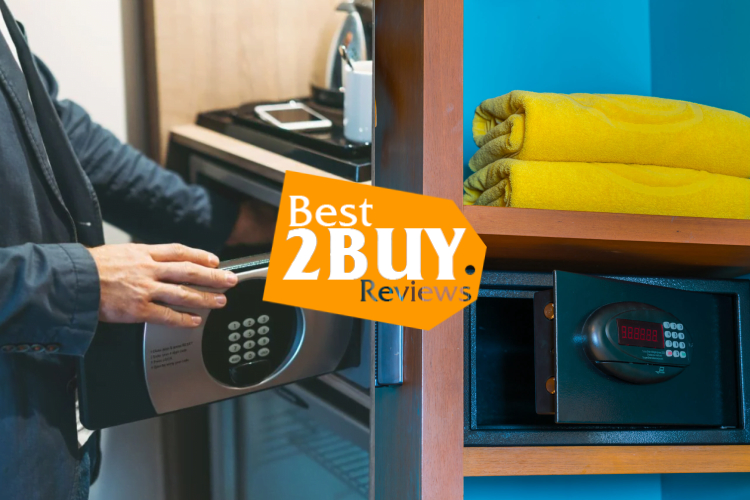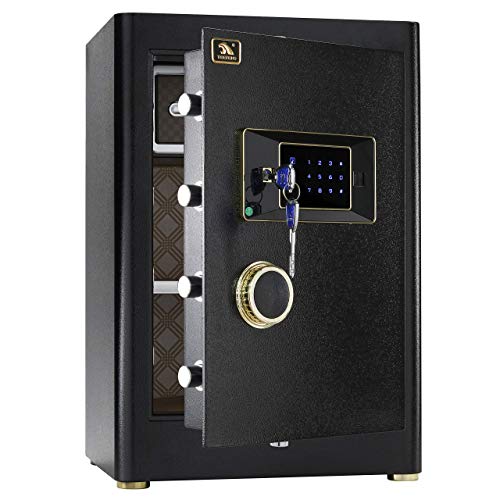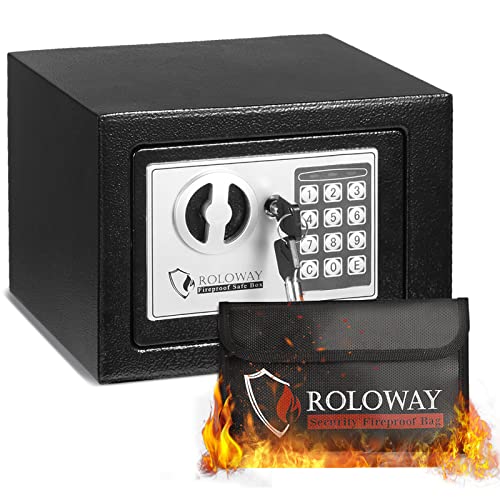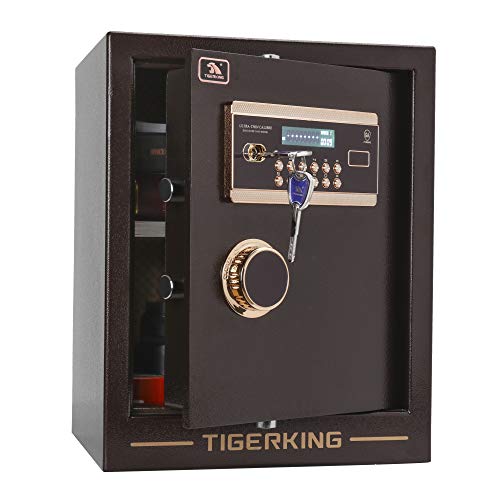A Comprehensive Guide To Hotel Safes

- 1. A Comprehensive Guide To Hotel Safes
- 1.1. What Are Hotel Safes?
- 1.2. Importance of Hotel Safes
- 1.2.1. Guest Security and Trust
- 1.2.2. Liability Reduction
- 1.2.3. Convenience for Guests
- 1.3. Types of Hotel Safes
- 1.4. Features To Look For When Choosing Hotel Safes
- 1.4.1. Digital Locks and Advanced Security Systems
- 1.4.2. Size and Design Variability
- 1.4.3. Audit Trail Capabilities
- 1.4.4. User-Friendly Interface
- 1.5. Maintenance and Best Practices
- 1.5.1. Regular Inspections and Servicing
- 1.5.2. Educating Staff and Guests
- 1.6. Conclusion
Hotels typically incorporate anti-theft systems to guarantee the safety of their guests. Additionally, dedicated staff members are on hand to ensure that guests can enjoy a worry-free stay. Despite these precautions, hotel safes continue to play a crucial role in accommodation. They serve as an extra level of security, ensuring the preservation of valuables even when guests are away from their rooms.
The presence of hotel safes helps mitigate potential risks and can be a decisive factor in guests choosing your property over other alternatives. If you haven't given much consideration to the significance of hotel safes and the available options, this article is essential reading.
What Are Hotel Safes?
Secure storage units known as hotel safes are commonly located in hotel rooms, specifically crafted to furnish guests with a reliable space to safeguard their valuable possessions. These safes are engineered to provide a heightened level of security for items like currency, jewelry, passports, and crucial documents. Typically compact in size, hotel safes are frequently integrated into or affixed to furniture pieces, such as wardrobes or drawers.
Importance of Hotel Safes
Guest Security and Trust
Hotel safes play a crucial role in fostering a sense of security among guests. Knowing that their valuables are protected within the confines of a secure safe instills trust in the hotel and contributes to a positive guest experience. This is particularly important as guests often carry items such as passports, jewelry, and electronic devices that are valuable and irreplaceable.
Liability Reduction
Providing hotel safes helps to reduce the hotel's liability in the event of theft or loss of guest valuables. By offering a secure storage option, hotels can demonstrate their commitment to guest safety and minimize the risk of potential legal issues arising from stolen or damaged items.
Convenience for Guests
Hotel safes offer guests a convenient and accessible solution for storing their valuables. Whether guests are heading out for a day of exploration or simply prefer not to carry their valuables with them at all times, a hotel safe provides a hassle-free and secure storage option.
Types of Hotel Safes
Electronic Keypad In-Room Safe
Widely utilized in popular hotels and resorts, this in-room safe employs an electronic keypad for security. Accessing this safe requires a handheld computer device, and it can also be connected to a computer for generating audit reports when necessary. This type is highly effective in preventing theft and safeguarding valuables.
Electronic Keypad Safe With Keypad Override Access
Distinguished by an override 'sequence' rather than a simple PIN, this hotel safe utilizes a removable chip to grant access to critical data. Comparable in effectiveness to the electronic keypad in-room safe, it provides an extra layer of security through its override mechanism.
Electronic Keypad Access With Manual Safety Key
Offering a slightly lower level of security than the aforementioned types, this safe incorporates both an electronic keypad and a manual safety key. While it permits data recording, it is limited to the date and time of the override entry. Access requires both the key and an override code, along with the physical movement of the safe.
Manual Key Safe With Safety Key Access
An older variant of in-room safes, the manual key safe has become less common in modern hotels, largely replaced by electronic counterparts. Even though it is rare, reputable hotels still using this type often restrict access, even to management, and store these safes in fire-retardant safes for added protection.
Features To Look For When Choosing Hotel Safes
When choosing a hotel safe, it's important to consider various features to ensure the security of guests' belongings. Here are some key features to look for:
Digital Locks and Advanced Security Systems
Modern hotel safes are equipped with cutting-edge security measures, including digital locks and advanced systems such as PIN codes and electronic key cards. These features go beyond traditional key and lock mechanisms, providing an added layer of protection. The use of electronic key cards, for instance, ensures that only authorized personnel and guests can access the safe, making it significantly more challenging for unauthorized individuals to tamper with or open the safe.
Size and Design Variability
Hotels cater to a diverse clientele with varying needs, and as such, hotel safes come in a range of sizes and designs. Smaller safes are ideal for storing personal items like jewelry and passports, while larger safes can accommodate laptops and other electronics. The flexibility in size and design allows hotels to choose safes that align with the preferences and requirements of their guests.
Audit Trail Capabilities
An essential feature for hotel management is the ability to monitor and track safe usage. Some hotel safes come equipped with audit trail capabilities, providing a detailed record of when the safe was accessed and by whom. This feature enhances security by allowing hotel staff to identify any suspicious activities and adds a layer of accountability, ensuring that the hotel can maintain a secure environment for its guests.
User-Friendly Interface
The overall guest experience is a crucial aspect of hospitality, and this extends to the use of in-room safes. Modern hotel safes prioritize user-friendly interfaces, featuring clear instructions and intuitive controls. Guests should be able to easily and quickly set their own PIN codes, access the safe, and retrieve their belongings without complications. A straightforward interface not only enhances the guest experience but also reduces the likelihood of user errors.
Maintenance and Best Practices
Regular Inspections and Servicing
Hotels should conduct regular inspections and servicing of their safes to ensure that all components are functioning correctly. Routine maintenance helps prevent malfunctions and ensures the longevity of the safes.
Educating Staff and Guests
Hotel staff should be well-trained on the usage and troubleshooting of safes. Additionally, hotels can provide informational materials in guest rooms to educate guests on the features and benefits of using the in-room safe.
Conclusion
Hotel safes play a crucial role in the hospitality sector, playing a significant role in enhancing guest satisfaction and ensuring the overall safety and security of valuable items. To deliver an exceptional guest experience, hotels must keep abreast of the latest advancements in safe design and security features as technology evolves. By investing in trustworthy and user-friendly hotel safes, establishments can foster trust, minimize liabilities, and guarantee a sense of security for their guests throughout their stay.











